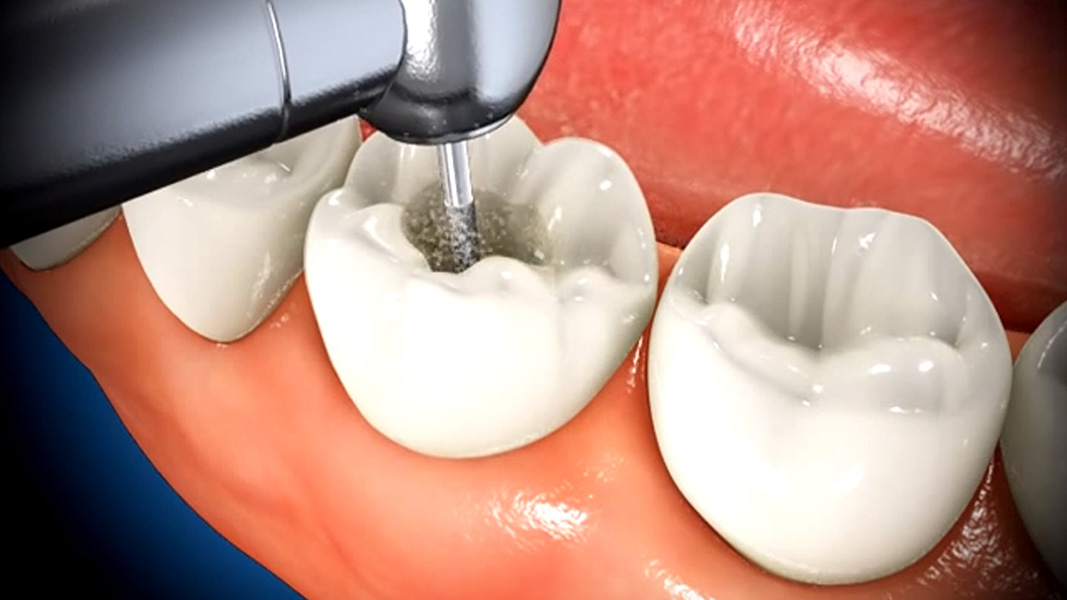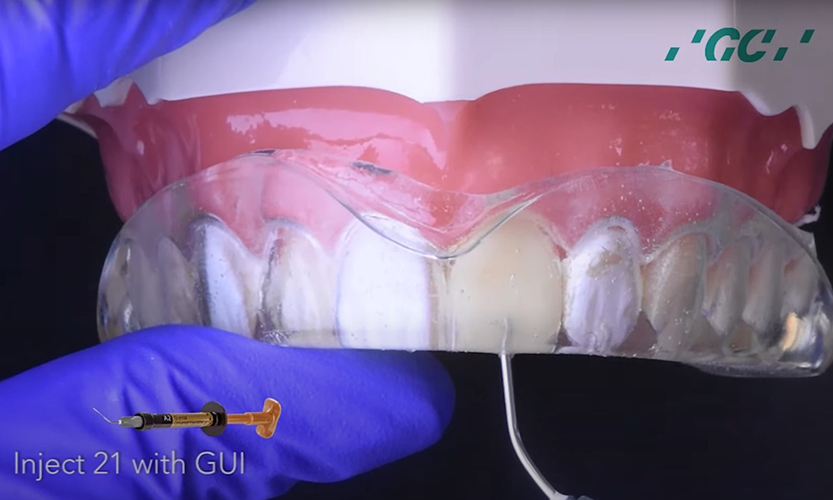You may have heard a few stories about root canals, and these may leave many with unnecessary anxiety. Just the mere mention of this term causes some to shiver. Why did this particular procedure get classed as so scary to the layperson? Should you be scared of a root canal? To help you find out whether it is reasonable for you to fear this dental procedure, let us weed out fact from fiction. Here are some myths and truths about root canals:
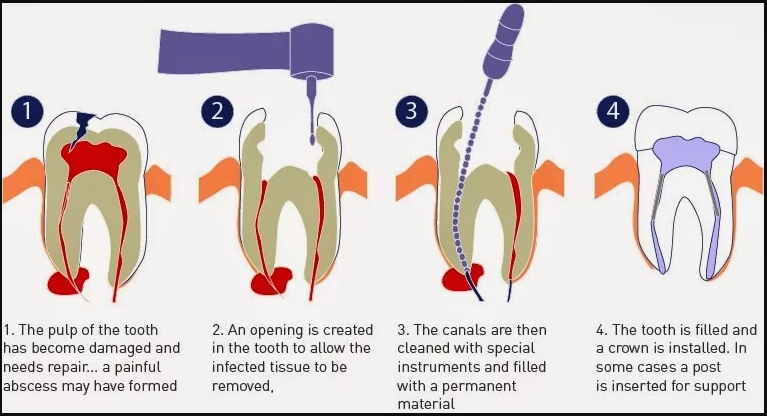
MYTH: A root canal is one of the most painful dental procedures around.
FACT: In the past, this may have been true, but recent dental advancements, as well as the development of better anesthesia, has made root canals no more painful than simple dental procedures like having a tooth filled. The pain that people fear from this procedure is actually often brought about by the fact that pain is already there. One reason for the root canal is to actually help get rid of the pain. Teeth usually anesthetize quickly with modern Articaine and Lidocaine local anesthetics. In some cases, Dr. Hawryluk will employ the ‘X-Tip’ intraosseous technique if more freezing is needed. A root canal procedure should not be overly painful.

MYTH: After a root canal, you can expect the pain to go away immediately.
FACT: Some people expect instantaneous relief from the pain after this procedure, and this is sometimes the case. You can expect the pain to usually reduce substantially, however, and this downgraded pain can last from a few days to a few weeks. Sometimes the tooth can be uncomfortable to chew on it for a week to ten days. This can be remedied with the help of over the counter pain relievers. Ideally, you would only chew lightly on your tooth with the root canal until any discomfort has diminished. The reason for the lingering tenderness can be related to the fact that the ligament holding the tooth to the bone (periodontal ligament) may be inflamed after the procedure and this takes a while to dissipate.

MYTH: A root canal is actually a procedure that kills your tooth.
FACT: A healthy tooth is neither ‘alive’ nor ‘dead’ as it is not a being in an or itself. Root canals are not designed to kill an infected tooth, but rather to save it by removing diseased pulp inside your tooth along with the bacteria that is found within it. The root is then prepared for the Gutta-percha filling, which seals off the tooth from bacteria, and the cavity filled to further protect the tooth from a recurrence of the infection. This procedure essentially saves the tooth. A tooth which has a root canal does not need the pulp tissue to keep healthy. The tissue surrounding the tooth is usually more than enough to keep your tooth health and nourished.


MYTH: An extraction is better than a root canal.
FACT: While extraction is less costly and time-consuming than a root canal procedure, it is not considered better in most situations. A successful root canal can actually make a restored tooth last a lifetime. If you remove a tooth the adjacent teeth will often tip into the missing tooth space causing the way your teeth bite together to be problematic. In addition, if a lower tooth is removed the opposing tooth will often shift downward by the force of gravity. Having your teeth subsequently shift can contribute to jaw (TMJ) pain. From a cost perspective, the root canal procedure is much less than placing a dental implant. Dr. Hawryluk will carefully assess your individual situation and help you make your decision about what treatment is best for you.
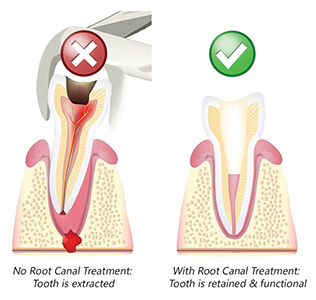
MYTH: Root canals require numerous visits to the dentist.
FACT: At St. Lawrence Dentistry most root canal procedures are usually completed in a single visit. However, there are still about 10% of cases where Dr. Hawryluk will do the root canal procedure over 2 visits. These are usually cases when the tooth is highly abscessed. Root canals generally take about 45 minutes of work for front teeth and about 1.5 hours for the molar teeth. Sometimes posts or crowns are done the same day as the root canal procedure. If this the case it can add to the length of time you may be at St. Lawrence Dentistry. Please let us know if you have any preferences between one longer appointment or shorter ones. Usually, patients driving from out of town to our Mississauga location prefer to prepare the dental crown (if needed) the same day as the root canal treatment.
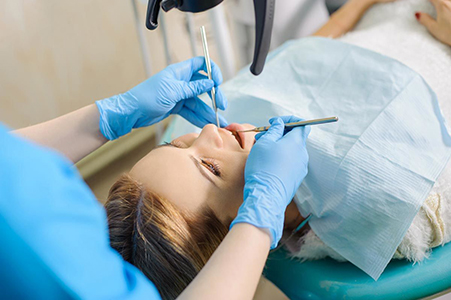
MYTH: Root canals are not necessary for dead teeth.
FACT: Even though a tooth may be considered non-vital due to the fact that the nerve inside the tooth no longer receives any blood supply, it still is possible for bacteria to thrive in such a tooth, which can then infect surrounding teeth, bones, and tissues. A root canal is performed to prevent such a thing from happening. The root canal will clean all the necrotic debris out of the tooth, and seal the end of the root so no bacteria can be harbored in the tooth.
If you would like to see how the tooth is cleaned during root canal treatment please visit us here:
Root Canal Procedures Can Save Teeth
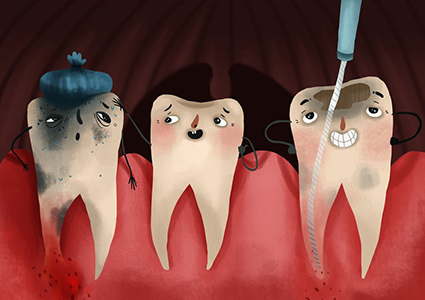
MYTH: You will only need a root canal when your teeth hurt.
FACT: Pain does not need to be a factor all the time when it comes to a root canal. Some teeth need this procedure even when pain is not present, as in the case of a tooth with no blood supply. Your dentist may surprise you with a recommendation for a root canal after a routine check-up if they find that you actually have a non-vital tooth that needs to be treated. If your x-ray shows abscess tissue at the end of the root a root canal may be needed whether it is hurting or not.
Myth: There is evidence root canals can cause cancer.
Fact: If you do an internet search on this subject you may arrive on sites promoting the ‘foci of infection theory’. This is based on the false assumptions of an early 20th-century dentist, Dr. Weston Price. He postulated that leaving a canal space without a live pulp leaves bacteria in the tooth and leads to many forms of sickness. However, modern root canal treatment sterilizes and removes bacteria from the tooth. This theory has been investigated many times since with modern scientific theory/techniques and has been completely discounted. The American Medical Association found in 2013 that cancer risk does not increase after having a root canal treatment. In fact, the study showed that dental patients with multiple endodontic treatments had a 45% reduced risk of cancer! If you are a patient at St. Lawrence Dentistry and would like to discuss the historical research of Dr. Price we would be pleased to do so.
If you would like to read more information about root canal treatment please visit us here:
St Lawrence Dentistry provides root canal treatment or ‘endodontic therapy’
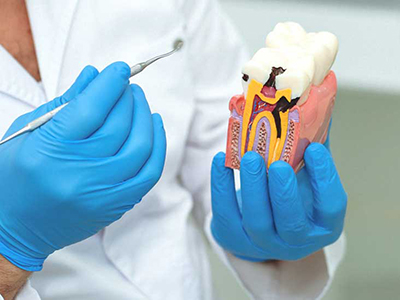
Root Canal Treatment has been highly refined in modern times and many of the so-called myths are based on old truths left over from the era when pioneering methods were used. Dr. Hawryluk is highly trained and has performed thousands of successful root canals with the most cutting edge techniques. If you are looking for a dentist in Mississauga and would like more information on root canal treatment please call us.
- Understanding Dental Cupping on Molars: Causes, Prevention, and Treatment - August 14, 2024
- Bone Preservation: Essential for Strong Dental Implants - August 5, 2024
- Porcelain Veneers from Design to Finish - July 27, 2024



